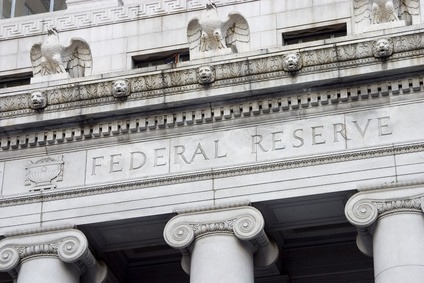Ben Bernanke and his colleagues released a statement expressing concern about the slow pace of the faltering economic recovery, stating that rates sill likely remain at low levels up to mid 2013 Three members dissented from this policy change and a preferred the previous, more hawkish tone. No hints about QE3 were seen in the statement and the chances seem very slim. The US dollar severely falls against the Swiss franc, dropping against the yen and gradually rising against the rest,.
This change in communication is exactly what Bernanke related to as using “better communication” in order to support the recovery. The market is looking for actions, not words. Regarding a third quantitative easing program, there are no hints.
Forex reaction
USD/CHF, which began falling before the release, extended its falls and reached a new record low at 0.7175. In the atmosphere of doom and gloom, the ultimate safe haven currency continues strengthening. The rest saw the dollar fall but then pick up:
EUR/USD reacted with a rise due to the softer rate policy, but dropped later. Similarly, GBP/USD jumped and is partially retreating. USD/JPY dropped but then got back up.
It is important to remember that currency reactions to the Fed can sometimes take a long time. When Tokyo opens at 00:00 GMT, we will get more important movements. In some cases, the full reaction is only felt during the European session.
FOMC Statement Critical Details
The release was delayed by a few minutes. Here is the relevant critical section from the statement:
The Committee currently anticipates that economic conditions–including low rates of resource utilization and a subdued outlook for inflation over the medium run–are likely to warrant exceptionally low levels for the federal funds rate at least through mid-2013.
And the QE section, reaffirming QE2-Lite (reinvestment of maturing assets, but no expansion of the balance sheet:
The Committee also will maintain its existing policy of reinvesting principal payments from its securities holdings. The Committee will regularly review the size and composition of its securities holdings and is prepared to adjust those holdings as appropriate.
Out of 10 voting members, 3 voted against this communication change: Plosser, Fisher and Kocherlakota preferred leaving the previous statement, that accompanied us for months: “economic conditions as likely to warrant exceptionally low levels for the federal funds rate for an extended period”.
This significant hawkish opposition to the dovish communication change also means that the chances of QE3 remain very slim.
Also oil is suffering from the lack of any QE3 hints – it fell under $80 once again.
Dark Picture
Looking at the bigger picture: the Fed painted a dark picture and finally acknowledged that growth will also be lower in the second half, despite falling commodity prices that will leave more money in Americans’ pockets. Here is the relevant part, which acknowledges that not only Japan is to blame (emphasis mine):
Temporary factors, including the damping effect of higher food and energy prices on consumer purchasing power and spending as well as supply chain disruptions associated with the tragic events in Japan, appear to account for only some of the recent weakness in economic activity
Federal Reserve officials met on the backdrop of a financial turmoil in the markets. The escalating debt crisis in Europe, the credit downgrade by S&P and of course the US slowdown all rock the markets.
Expectations for hints about a third quantitative easing program were raised. In the preview towards this event, I wrote that the chances of QE3 are small, due 5 reasons. The most important reason was the lack of deflation risks.
Bernanke stated that the situation today is different than one year ago regarding the risk of falling prices. This was a primary goal of QE2, and probably the only achieved.
QE2 failed to stimulate serious growth and employment, which remain too weak. So why use this tool again? Indeed, he doesn’t use it.
Further reading: QE Landing in Europe – Is the Euro Heading South?

